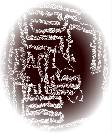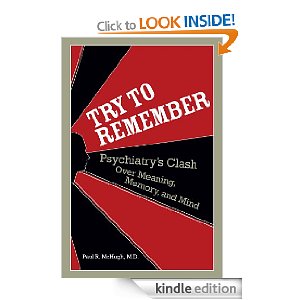How evidence and witness testimony can be unreliable
How hard it is to put things straight
Damage caused to individuals and families
UAI United Against Injustice
Miscarriage of Justice Day
Sat 12 October 2013
MANCHESTER
Videos on evidence at
www.humanrightstv.com/ innocence-inuk
or visit Innocent, INUK,
United Against Injustice for textual information on a wide range of issues
False confessions, Witnesses; Links; Miscarriages of Justice;
The following are on the Prisoners/Family Resources Page
Prisoners, their Families; Veterans;
More resources for Prisoners, Women in prison, Families;
Learning difficulties; Vulnerable people in prison;
Alternatives to prison; Violence in prisons; Mental health issues;
A common factor in a significant number of miscarriage of justice cases is that people may confess to things they have not done. It happens when faced with the stress of being asked lots of questions. They are probably scared, isolated from people they know, and away from normal surroundings. When confronted, people can feel disorientated and threatened - they just want the situation to end. And witnesses often give misleading accounts of what happened, for a number of natural reasons.
Even in normal situations people tend to comply with what is suggested, or seems to be expected of them. If elements of bullying or constraint are added into the equation, all of us can behave very differently.
If you need information or access to a computer, try a Library or Citizens' Advice Bureau to help with finding or interpreting information. If you have a specific query it might be best to contact an organisation or specialist. You may find it helps if someone you know can go with you.
Information available changes frequently -
While you are searching other items of use can turn up
'The Psychology of False Confessions' by Richard P Conti http://truth.boisestate.edu/jcaawp/9901/9901.pdf
'Psychology of False Confessions' notes by Dr Gisli Gudjonsson. See his book 'The Psychology of Interrogations, Confessions and Testimony'
'False Confessions' on Wikipedia http://en.wikipedia.org/wiki/False_confession
Listen to BBC's 'All in the Mind' programme on false confessions at www.bbc.co.uk/radio4/science/allinthemind_20061227.shtml
Article on lack of sleep and false confessions http://news.bbc.co.uk/1/hi/wales/1000157.stm
'Conformity to Social Norms' http://psypress.co.uk/smithandmackie/resources/topic.asp?topic=ch09-tp-01
ForeJustice Wrongful Convictions links worldwide including United Kingdom
Download free book in pdf format www.all-about-psychology.com/support-files/hugo-munsterberg-essays-on-psychology-and-crime.pdf
'The False Confession' by Alexandra Perina, Psychology Today www.psychologytoday.com/articles/200304/the-false-confession
'The Psychology and Power of False Confessions' by Ian Herbert www.psychologicalscience.org/observer/getArticle.cfm?id=2590
'The Situation of False Confessions' http://thesituationist.wordpress.com/2009/12/29/the-situation-of-false-confessions/
'Coerced Confessions' by Terence Campbell www.campsych.com/cooerced.htm
'Why do Innocent People make False Confessions?' http://crime.about.com/od/issues/a/false.htm
'Wrongful Convictions Causes & Remedies' list from Duke Law Center www.law.duke.edu/ccjpr/resources/causes
Click for a Google search on False Confessions
Click for a Google search on Eyewitness Testimony
Did you sign something? |
 |
Were you confused when questioned? |
MISCARRIAGES of JUSTICE
'Citizens Advice Handbook: Practical independent
advice' Penguin paperback C.A.B.
'Defending the Guilty: Truth & lies in the criminal courtroom' by Alex McBride
'Human Rights in the UK: An introduction to
the Human Rights Act 1998' by
D.Hoffman & J.Rowe QC
'Judge for Yourself: How many are innocent?' by L A Naylor
'Killer in the Shadows/Robert Knapper' by Laurence Alison, Marie Eyre
'Legal Blunders' by Geoff Tibballs
'Michael Mansfield: Memoirs of a radical lawyer' by Michael Mansfield
'Miscarriages of Justice: A review of justice in error' by Clive Walker, Keir Starmer
'Miscarriages of Justice' by Bob Woffinden
'No Smoke: The shocking truth about British justice' by Sandra Lean
'Power, Resistance, Knowledge' by Andrew Green
'Presumed Guilty: British legal system exposed' by Michael Mansfield
'Rethinking Miscarriages of Justice: Beyond the tip of the iceberg' by Dr Michael Naughton
'Scandals in Justice' Magazine www.scandals.org
'Somebodies & Nobodies: Overcoming the abuse of rank' by Robert W Fuller
'Stack & Sway: The new science of jury consulting' by Neil J Kressel, Dorit F Kressel
'Sway, the irresistible pull of irrational behaviour' by Ori Brafman, Ron Brafman
'Taking Liberties' by Chris Atkins, Sarah Bee, Fiona Button
'The Algebra of Justice' for comments on some wellknown UK cases http://www.justjustice.org/algebra.html
'The Death of Justice' by Michael O'Brien with Greg Lewis
'The Handbook of Human Rights Law:
An accessible approach to the issues & principles'
Michael Arnheim
'The Price of Innocence' by Iain McKie & Michael Russell
'The Use and Abuse of Power' ed by Annette Y Lee-Chai, John Bargh
'Trial & Error' by David Jessel
'Trial & Error' by Robert Kee
'Weird Cases: Comic and bizarre cases from courtrooms around the World' by G Slapper
'When Law Fails: Making sense of miscarriages of justice' by Douglas Berman, Charles Ogletree, Austin Sarat
'Your Rights: the Liberty Guide to Human
Rights'
by Megan Addis & Penelope Morrow
www.youtube.com/watch?v=XhIGb9HwnAk
|
https://www.youtube.com/watch?v=ItDdUXFHNyE
|
| Is it really worth it? | |
Click for 'Why rejection hurts: a common neural alarm system for physical and social pain' by Naomi Eisenberger and Matthew Lieberman http://www.neuro-psa.org.uk/download/rejection.pdf Ostracism: The Cruel Power of Silence, an All in the Mind radio interview http://www.abc.net.au/rn/science/mind/stories/s1066040.htm Kipling Williams has researched ostracism and its effects, and you can search on Google or any search engine for details on his work. Some books he has authored are available from Amazon:
Also see: 'Don't Take It Personally: The Art of Dealing with Rejection' by Elayne Savage Amazon often have second-hand books which are much cheaper! |
|
Scapegoating and ostracism have similarities:
Someone or some people can get blamed or ignored Actually it can happen to anyone, and for no particular reason |
|
ALLEGATIONS of ABUSE, MEMORIES, PROBLEMS over MEMORY
The video on the left below lists some books offering insights into what makes us tick as we do - sometimes! Everyone is different, and some people change over time more than others. No single approach makes sense for all scenarios or individuals. If we use labels to describe people, they should be helpful for those people in that situation rather than counter-productive. The sad thing about extremes of opinion is that people can easily get hurt or ostracised through no fault of their own.
If you have experience or knowledge that is upsetting, the video is not meant to make things worse. It may be of interest, and could help people find approaches or ideas that make sense for them. If something does not feel helpful there is nothing to feel ashamed of in steering away from it. It is not a failure on your part. Learn what suits you, be ready to change an approach, or look for things to be doing to help yourself. The placebo effect seems relevant for whether we get better or how quickly. Does this apply to how convincing a psychotherapist is, or how damaging the wrong emphasis is for some vulnerable people? If you had unsuitable help, perhaps you can gain strength from that in some way.
Since preparing the video, we have come across other material agreeing with some issues, disagreeing with others or providing further information. What ‘makes sense’ for us is an individual phenomenon depending on what happens and how we experience it. Areas need to be open to discussion without putting all one's eggs into one ideological basket, or doing things to jeopardise other people’s wellbeing or reality.
How we remember things may differ from actual events and many factors are involved. Laboratory experiments on memory are not ideal, but people who have studied memory say we probably don’t repress memories that surface later on. Other people talk of traumatic events being stored differently from ordinary ones.
This is a very difficult subject to raise because of people’s painful experiences and the accusations that can follow. When someone is abused they may want to set the record straight and tell people, which is natural. Sometimes the wrong person is accused through confusion over facts, and then their life gets damaged too. Sometimes issues can be straightened out over time but not always.
Books where you may find useful information are listed here in addition to ones in the video, and covering a spectrum of views. Inclusion of these books is not meant to imply acceptance of any or all of their content:
'Counselling or Quackery?' by William Burgoyne
‘I: the philosophy and psychology of personal identity’ by Jonathan Glover
‘Memory and Abuse’ by Charles Whitfield
‘Multiplicity: the new science of personality’ by Rita Carter
‘Open to Suggestion’ by Robert Temple
‘Pillar of Salt’ by Janice Haaken
‘Searching for Memory’ by Daniel Schacter
‘Suggestions of Abuse’ by Michael Yapko
'Theater of Disorder: Patients, doctors, & the construction of illness' by Brant Wenegrat
‘The Plural Self: multiplicity in everyday life’ by John Rowan, Mick Cooper
‘The Saturated Self: dilemmas of identity in contemporary life’ by Kenneth Gergen
ABUSIVE COUNSELLING or THERAPY, THERAPY CULTURE, MENTAL HEALTH
The video on the right below outlines some issues that can occur during the process of counselling or psychotherapy. Perhaps boundaries become blurred, or an approach or an individual do not suit the person. Those seeking help often feel vulnerable, and can get torn apart or 'over-therapised'. People may be damaged unnecessarily through 'unhelpful help', or psychological and ideological projections, and it takes time to realise, make some changes and recover.
For further information:
http://website.lineone.net/~vex/ Articles and links to information on abuse in therapy, UK and further afield. VEX is in favour of some form of control or regulation of psychotherapy
www.tansal.org.uk/guidelinesforhelp.html Guidelines for help
www.youtube.com/user/cynthialysis Youtube channel encouraging people to find theories that suit them as individuals
'Selfwatching: Addictions, Habits, Compulsions: what to do about them' by Ray Hodgson & Peter Miller
Dorothy Rowe's books on many subjects to do with human emotions and relationships (some available cheaply secondhand at www.amazon.co.uk or you can see them in book stores)
'Madness Explained: Psychosis and Human Nature' by Richard P. Bentall & Aaron T. Beck
'Manufacturing Victims: What the Psychology Industry is doing to People' by Tana Dineen
'House of Cards: Psychology and Psychotherapy Built on Myth' by Robyn M. Dawes
'Therapy Culture' by Frank Furedi
'The Myth of the Chemical Cure' by Joanna Moncrieff
'The Myth of Mental Illness' by Thomas S. Szasz
'Broken Boundaries, Stories of betrayal in relationships of Care' by Sarah Richardson, Melanie Cunningham et al.
'Shouldn't I be Feeling Better by Now?' ed. by Yvonne Bates
Fish in a Barrel' by Grace Towers
'Sexual Abuse by Health Professionals' by P. Susan Penfold
'Out of Bounds: Sexual Exploitation in Counselling and Therapy' by Dr Janice Russell
'Patients as Victims: Sexual Abuse in Psychotherapy and Counselling' by Derek Jehu
'Breach of Trust: Sexual Exploitation by Health Care Professionals and Clergy' ed. John C. Gonsiorek
'Falling for Therapy: Psychotherapy from a Client's Point of View' by Anna Sands
'Boundaries and Boundary Violations in Psychoanalysis' by Gen O. Gabbard, Eva P. Lester
Talking Cure - useful information & links relevant for the UK at www.talkingcure.co.uk (site of Dr Douglas McFadzean & associates)
'The Americanization of Mental Illness' article by Ethan Watter, New York Times, 8 January 2010 - www.nytimes.com/2010/01/10/magazine/10psyche-t.html?pagewanted=all
www.youtube.com/watch?v=x045qBCTK_0
|
www.youtube.com/watch?v=t6pdDNo2hf4
|
Prozac: PANACEA OR PANDORA? by Ann Blake Tracy, Ph.D.
The product of five years of research, and the study of the cases of approximately 1,000 patients on a long-term basis. The author holds a Doctorate in Biological Psychology, and heads the only support group in the state of Utah for those who have suffered adverse reactions to the SSRI drugs such as prozac, paxil, zoloft, luvox, effexor, serzone, anafranil & the diet pills - fenfluramine, fen-phen & redux.
"Brain wave patterns indicate patients [taking psychiatric drugs such as prozac, paxil, zoloft, luvox, effexor, serzone, anafranil & the diet pills - fenfluramine, fen-phen & redux] are in a total anesthetic sleep state while appearing awake and functioning. Increasing serotonin - exactly what these drugs are designed to do - induces both nightmares and sleepwalk. Patients report over and over again that they have lived out their worst nightmare. And as with sleepwalk episodes, many have no recall or little recall of what they have done. Often someone must prove to them what they have done while they where under the influence of these drugs before they will believe it to be true. One patient stated that he could not detect during his two year use of Prozac what was real or what was a dream."
"Although initially increasing concentration and energy, patients [on drugs such as prozac, paxil, zoloft, luvox, effexor, serzone, anafranil & the diet pills - fenfluramine, fen-phen & redux] report long-term effects of impaired memory and concentration and mental disability. Learn the reasons why large numbers of Prozac patients report FALSE memories of ABUSE. As disruption of serotonin alters perception, reality and dreams SEEM one and the same, creating a STRONGER hypersuggestable state than hypnotism."
"Elevated levels of serotonin (5HT) - exactly the chemical these [SSRI] drugs do increase - is the same chemical that LSD, PCP and other psychedelic drugs mimic in order to produce their hallucinogenic effects. Have these drugs turned the 90's upside down for us to relive the 60's? Learn that elevated levels of serotonin are found in schizophrenia, mood disorders, organic brain disease, Alzheimer's, anorexia, autism, bronchial constriction, etc."
Try to Remember: Psychiatry's Clash Over Meaning, Memory, and Mind
In this thought-provoking account, McHugh explains why trendy diagnoses and misguided treatments have repeatedly taken over psychotherapy. He recounts his participation in court battles that erupted over diagnoses of recovered memories and the frequent companion diagnoses of multiple-personality disorders. He also warns that diagnoses of post-traumatic stress disorder today may be perpetuating a similar misdirection, thus exacerbating the patients’ suffering. He argues that both the public and psychiatric professionals must raise their standards for psychotherapy, in order to ensure that the incorrect designation of memory as the root cause of disorders does not occur again. Psychotherapy, McHugh ultimately shows, is a valuable healing method—and at the very least an important adjunct treatment—to the numerous psychopharmaceuticals that flood the drug market today.
An urgent call to arms for patients and therapists alike, Try to Remember delineates the difference between good and bad psychiatry and challenges us to reconsider psychotherapy as the most effective way to heal troubled minds.
The Devil's Children
ed. J.S. La FontaineA number of cases of serious child abuse have resulted from beliefs that children may be possessed by evil spirits and may then be given the power to bewitch others. Misfortune, failure, illness and even death may be blamed on them. The 'cure', nowadays called deliverance rather than exorcism, is to expel the spirits, sometimes by violent means. This book draws together contributions on aspects of possession and witchcraft from leading academics and expert practitioners in the field.
See chapter by Sherrill Mulhern 'Embodied alternative identities: Spiritual possession, psychiatric disorder or socio/political stratagem?'
- o O o -
|
The following is a direct link to reviews at Amazon on 'Second Thoughts' by Dr Paul Simpson, a therapist who came to believe that the type of help he offered clients led to confusion and false allegations. He founded Project Middle Ground in America to open up dialogue between his clients and family members whom they accused of abuse. In view of the success often encountered, it is mentioned in the hopes that something similar may be attempted in the UK. People similarly affected can check the comments made and see how they apply to their own lives, either as accusers or as accused individuals: http://www.amazon.com/Second-Thoughts-Paul-Simpson/product-reviews/0785274189. Further information is at http://www.equip.org/articles/second-thoughts-about-recovered-memories Various academics at UK universities have written papers about bridging what might seem an impossible divide. Sadly people tend to fight a particular corner, but Dr Simpson showed that it is possible to try for a middle ground. Perhaps Dr Simpson's approach of working with families involved in the controversy is not directly applicable in the UK, but there may be an alternative approach that suits our culture. |
|
www.youtube.com/watch?v=eJ2sgIuflFc
Double standards, double binds, issues of control - Seeking help and how these factors may sometimes be involved in counselling, therapy, or simply help. See Playlists & Favourites on 'theCojent' channel: |
www.youtube.com/watch?v=PSc_0-Hqurg
Spoof on the Pied Piper - People in this movie have disabilities or are different in some way, and find it hard to mix. Like anyone, they need to feel accepted. The Piper takes them to people who assure them of answers to their problems. They soon find things are very different! |
Where can Cult Victims find Help? See links Worldwide at
www.cultavoidancesociety.org/Cult--10.html
http://cultavoidancesociety.wordpress.com/
| HUMAN RIGHTS | Updates are at TANSAL ABUSE & RIGHTS |
GENERAL LINKS Supporting a Survivor of abuse plus Survivor Links General Links, Directories, Other information Guidelines for Help & Self-Help | Mental Health Resources | Groups, Cults, Beliefs, Scams | Scapegoating, Abuse, Dissing | Domestic Violence, Stalking, Bullying, Coercion, Safety |
Web by Strangewayze
|








